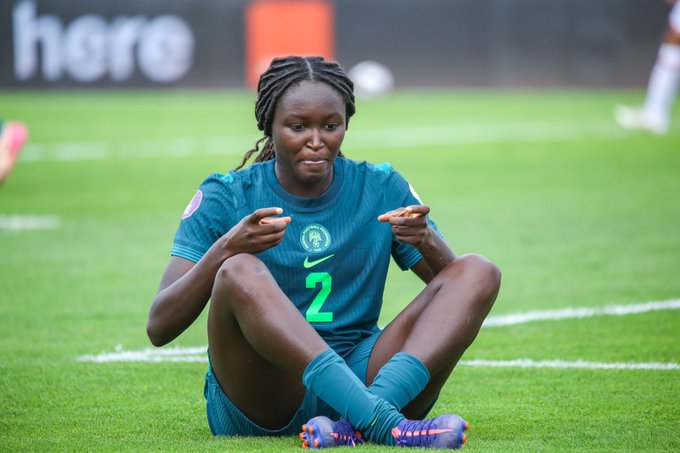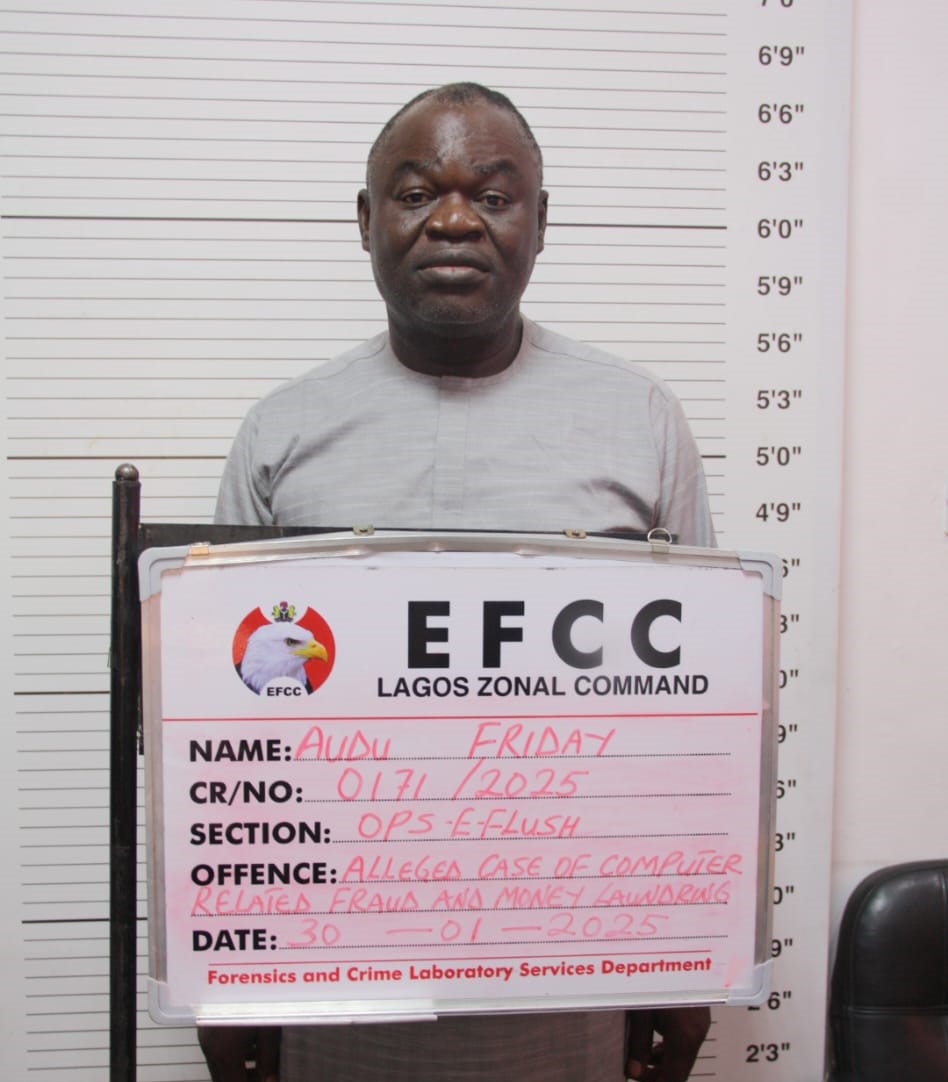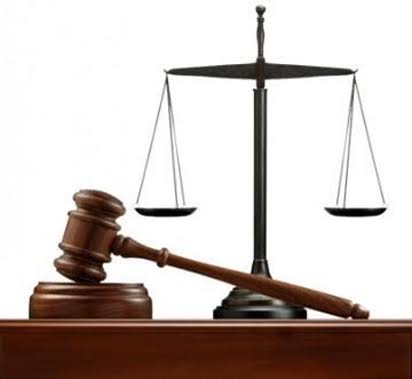INTERVIEW: Despite All Challenges, Heardfort Chambers Will Continue To Help Nigerians Get Justice For Free – Orija

In this part of the world, it is rare to see a group of people working tirelessly to fight for the cause of justice for free. But at Headfort Chambers, there are women, whose passion is to help humanity, to give the hopeless in the society that there is still hope. They believe that justice must not be one sided, the defendants deserve justice regardless of his or her social and economic status. These are what Headfort Chambers, an all-women law firm, stands for and the passion that drives them on daily basis despite enormous challenges they face amid the uncertainty and the terrain of Nigerian justice system. Headed by Oluyemi Adetiba-Orija, a legal practitioner, solution provider, goal getter, an optimistic lady, Headfort Chambers has carved a niche for itself because it is an-all women law firm, which ventures into the business of helping people and to be the voice of the poor and the oppressed. We didn’t want to make it an all—women when we started. What we are doing is to represent indigents in Nigerian prisons for them to get justice. The men folk see that what we are doing is not a lucrative job because there is no money in it. But I must say that women are the compassionate and the tender gender. Women have passion for justice. So when women walk into our organisation and we told them what we do, they are quick to resonate and are eager to be part of us regardless of the pay. The trend is that people come for recruitment but at the end of the day the women are more interested, it was not just our intention to make it an all-women affair,” Orija told Taiwo Adelu, Associate Editor of P.M. EXPRESS in her Chambers on Lagos Island during a recent interview. The alumni of Ekiti State University, Ado Ekiti used the interview to explain details about her dreams for the hopeless and the injuries most Nigerians have suffered in a Nigerian legal system which according to her is still in a process.
How will you describe the Nigerian legal system vis-à-vis the challenges the citizens are facing to get justice in this country?
Nigerian justice system is in a process, we have not gotten to where we are going, but we are not where we used to be. The major problem we are facing most especially in the criminal justice system, which is our area of focus in this organisation, is that the process of getting and attaining justice at all is cumbersome with a lot of bureaucracies and conditions. For instance, everybody knows that a suspect arrested must be charged to court under 48 hours, but there are a lot of people in police cells for one month without being charge to court for any offence. We are faced with the challenges of going to the police to ask them that if you cannot release these people, then charge them to court. When he or she is eventually charge to court, the court now will say this offence is a bailable one. What will follow is that the suspect will now be remanded in the prison pending the time he or she meets up with the bail conditions. The process of perfecting this bail is another herculean task as it is also cumbersome. The condition the Magistrate gives to perfect this bail is more or less as if you are buying your freedom and so many people cannot afford it. For instance, a Magistrate says a suspect who stole an item worth N100, 000 must provide a level 14 civil servant as a surety for his bail. How can such person meet up with this condition and how many Nigerians have such category of civil servant in their families? It will be difficult to get one except you have to pay to get one. At times, it is somebody who has a landed property. Our findings revealed that most of the people in prisons today are people who have been granted bails by the court, but because of all these conditions, which they couldn’t meet, they continue to languish in jails.
Another problem is the delay in the justice system. A suspect who is supposed to be tried immediately finds his case been delay for almost a year even without the case been heard. The challenge of corruption in the system is also there. What I can say is that the system is still in process. People and organisation like ours are rising up everyday demanding for changes in the system that some laws must be repealed or be reviewed. I think with our consistency, we will get there as we will not rest until we get there.
Has there been any conscious effort to tackle these problems?
If you look at our court system, everyday, trainings are being held, unfortunately, we are a people that do a lot of talking less action. The fact is that organisations, government authorities have identified these problems. Thank goodness that we all know that there are problems. They have organised trainings, symposia, workshops and we have been sitting in roundtable discussion to do the talking every year, but nobody is taking action. That is why we say as an organisation, we have done with this talking, we must act now.
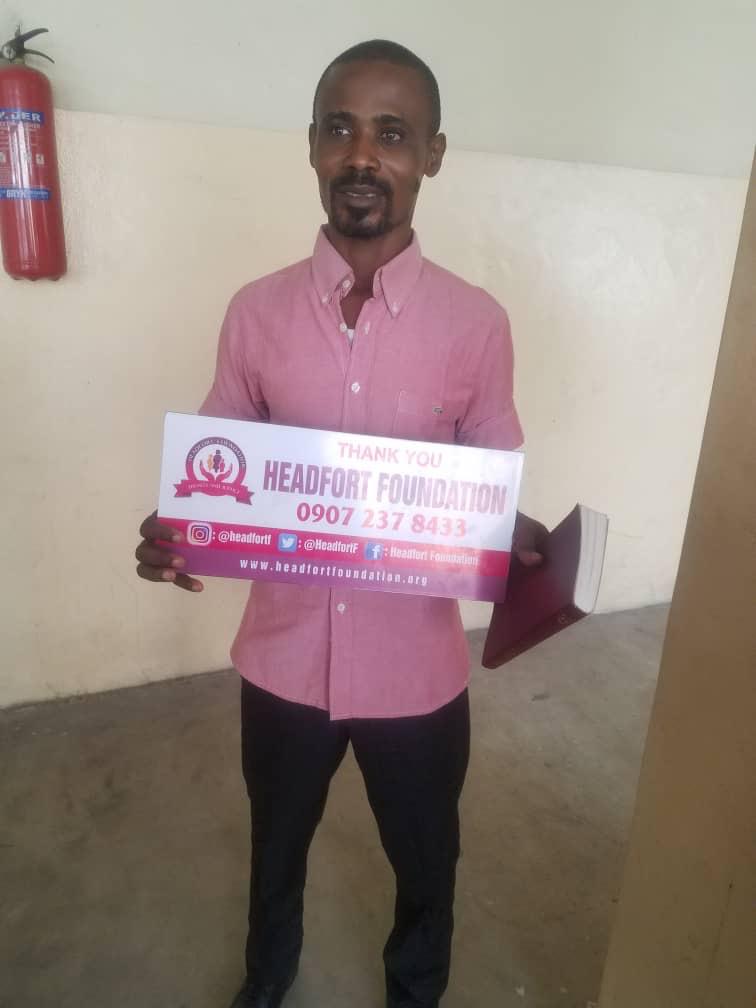
More than two-thirds of Nigeria’s prison inmates are pre-trial detainees; some having spent decades behind bars, waiting for a trial, is this the kind of judiciary system expected in a civilian and democratic government?
Absolutely no, this is not what should happen in a democracy, but due to the challenges I have earlier mentioned, we see these things happening. Lagos state is estimated to have a population of about 20 million people and I came to realise that we don’t have up to 100 judges on ground to handle cases of different kinds in a metropolitan city as Lagos. This means that one judge may handle more than a thousand cases at a time. It is expected that such a judge will keep on adjourning cases because he or she cannot do more than expected and this brings unnecessary delay we are talking about. The state government has its own share of the blame. I am talking of Lagos state because we operate here. There should be environment of good communication between the court and the lawyers for them to know sitting day and time. It is not good for me to leave my home for the court only to be told that the court is not sitting for that day.
Another problem is somebody who is being charged for a murder case for instance, we all know that magistrate court does not hear murder case, a rape case and other capital offences, but the police will first charge you to that magistrate court and you will be there for more than two years awaiting legal advice from the Office of Director of Public Prosecution (DPP), ironically that advice can take two years to come up. When it eventually comes out that is when they will now tell you that you don’t have a case to answer, so what happens to the two years you have spent in detention. If you have a case to answer, they will now charge you to a court of competent jurisdiction to handle the case after you might have spent two years in detention. It is saddened that before they charge you to a higher court and before they assign the case to a judge is another process that will take some time. So these are the kinds of issues we have in our justice system in Lagos, which I am very sure we not be different from other states in the country. Why do any prosecuting officer charge me to a magistrate court knowing that the court has no jurisdiction to hear the case, why not taking me straight off to the court that will listen to my case. Why do I have to waste so much of my life in prison? This is more of the thing we see and experience everyday in our courts in Nigeria. The suspect, whose liberty is at stake, is the victim of this anomaly in the system. So, if we want to make headway, these bureaucracies have to be cut down.
There are reports of human rights abuses in Nigeria, but on each occasion of this report, the Nigerian government usually denies such incidents. With your experience on the frontline of getting justice for people, how would you assess this situation?
I do not understand someone denying what is obvious in the society. Police brutality for instance has now becoming a routine occurrence in the country to the extent when an incident of this nature happens, people are now surprised again. We see this happening every other day. We have a lot of people who are victims of police brutality. The reason this is going on is that our citizens are not educated. This is not about formal education. Even people who have gone to schools do not know their rights in Nigeria. So a policeman stops me on the road, all I want to do is pay him. I want to leave without ascertain why he stop me in the first place. What I have done, what is my offence? A lot of people are victims of police brutality who don’t have people to turn to for help and in most cases they usually leave it for God.
Until people begin to stand up to the police, yes you are a police officer, but your duty is to protect me and not to brutalise me. At All-Women Law Firm, we do a lot to sensitise the people on the need to know their rights. We owe it a duty to educate the people. I think that is also a way to decongest the prisons because if the people are informed from the beginning, they won’t even land in the prisons.
A school of thought has called for the review of police prosecuting power, what do you say to this?
Why do the police prosecute in the first place when they are not lawyers? But the law permits the police to prosecute at the magistrate level notwithstanding that they are not lawyers. However, this has disadvantages and advantages. The disadvantages overweigh the advantages. One of the demerits of this is that because these police are not lawyers, they don’t have the basic legal education and experience cum exposure to do this job effectively and efficiently. Yes, they might been in the investigation department and seeing a lot of things over time, they cannot compare themselves with someone who has gone to schools to read law, pass through the Law School and understand the ethic of the profession and what law is all about. What this usually leads to is that a ‘criminal’ usually gets favourably judgement because these police prosecutors cannot pursue their case professionally in the court, leaving a lot of loopholes and weaknesses for the court to strike out the case. What I am saying is that if a real criminal has money to hire a sound lawyer, he can get away with the crime because the police prosecutor can’t give more than he knows. Another thing is that if you have ever walked into a court where a police is prosecuting, even if you are not a lawyer, you would not be impressed; the question you would ask is what is going on here? They are not professionals; it is an avenue for them to also make money. They will collect money from the defendant and collect money from you who is the complainant. For instance, a complainant who has been duped would be extorted for him to get justice. There is a provision of the law that says as a complainant, you can hire a lawyer, who will watch the proceeding for you, we call this ‘watching brief’. What this means is that when the police is prosecuting my case in the court, I can get a lawyer who oversees what the police is doing to ensure that the police prosecutor is doing the needful and provide assistance, but that lawyer cannot speak in the court. He can only be seen not be heard. Before he can be heard, he has to take the permission of the court. We call it ‘leave of court’. To me, it doesn’t make sense for the police to prosecute cases. The police have a lot on their hands already. It is always hard for them to follow up cases. You can imagine that the court also gives them the power to verify the addresses of the sureties. In the process of doing this, they will ask you for transport money; this is another room for extortion.
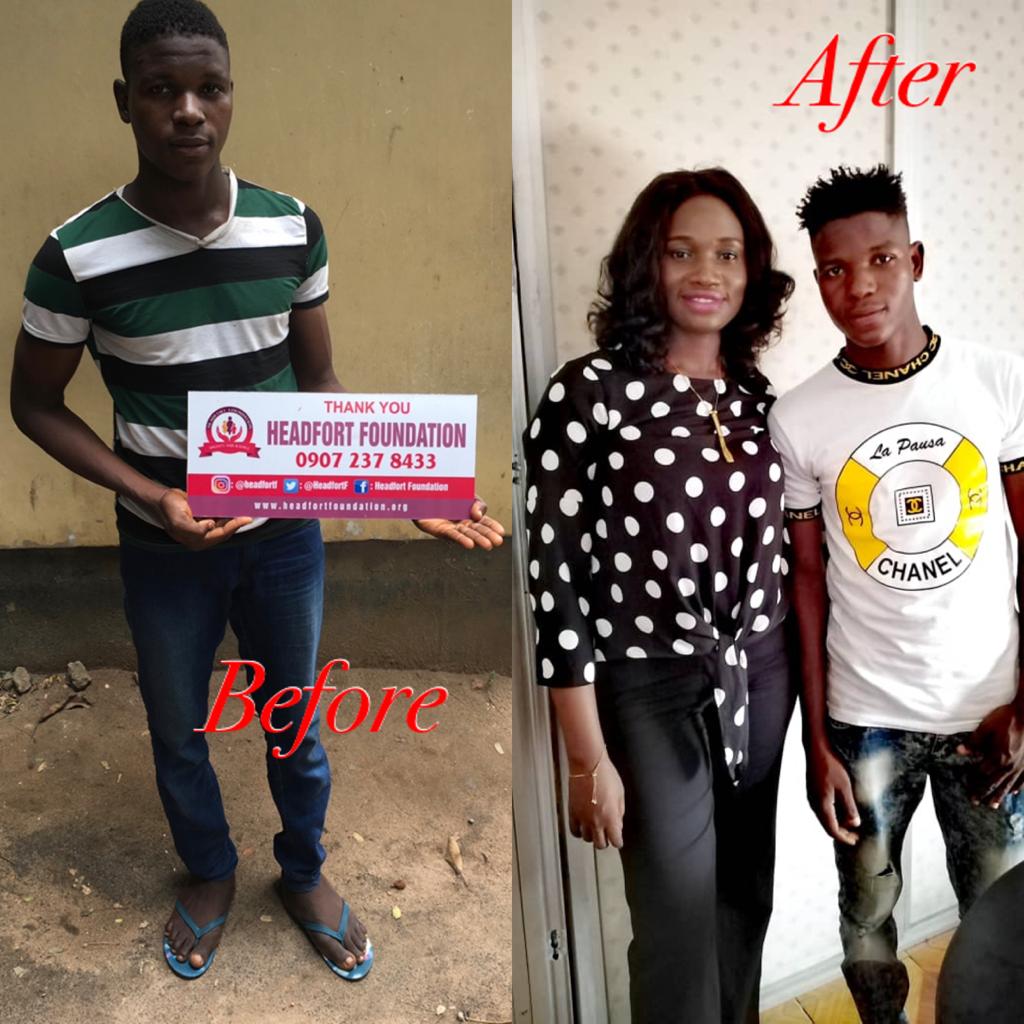
Last year, Nigeria’s President, Muhammadu Buhari made reforms to Nigeria’s Prison Service, changing the name to Correctional Service, and promising to speed up trials, have you seen any noticeable changes in the system between then and now?
I think the only change we can see is the change of names. One provision of that law that was reformed that we were all happy about was the Custodian, I mean the Prison Controller is given the right to say that the prison which he oversees is congested, and he won’t be able to accommodate any inmate or prisoner. The implication of this is that if the prison is built to contain 800 people, and we now have 3,000, the Controller can say he is having more than he can contain. But this is not the case even after what Buhari said. So, we have a lot of laws in place in Nigeria without proper execution. I must confess, nothing has changed, and the prison system in Nigeria remains the same. Again, the reformed law in any way has not influenced speedy trial at all. Nothing has changed except for the name and the colour because we saw them repainting the prisons with new colour.
How will you describe professionalism in Nigeria Police? Are police really friends of the people?
The Nigeria Police are really not friends to the people, but I will always like to commend when there is need to do. Recently on the social media space, a police complaints unit was introduced where people can lodge complains against any erring officer and proper disciplinary action will be taken against such officer. I think this is good. That unit has been functioning very well and has been working. The major problem I have with the professionalism of the police is the way they handle reported cases of sexual offences. If you walk into a police station, going with a victim of sexual offence, the kind of questions they would be asking a person who has just gone through an ugly situation of sexual violence, you will wonder what kind of police are we having in this country. Questions like ‘what were you wearing, why did you go there? and other unexpected questions to castigate the victim. I think they need a lot of training and recruitment. Recruitment in the police should not the people who have lost hope in life. If such people are armed with guns in the Force, then you can imagine the result. The recruitment process should be changed. Let us recruit people that will change the system like the psychologists, lawyers, people that understand criminology. At times, you see the police turning civil cases to criminal matters There is no professionalism of any sort in the Police.
Can you tell us the successes and achievements Headfort Chambers has made in getting justice for the helpless inmates?
We are about one year and four months old now, and we have helped no fewer than 121 inmates out of the prisons for free. That is a lot for us in a short time considering the enormous challenges and the difficult terrain of Nigerian justice system. We could do this because of our persistent and passion from the team. On our sensitisation project, we had sensitised about 1,000 senior secondary school students, teaching on the reality of police brutality and their human rights. We have received recognitions from the society, partnership with some organisations and individuals who are resonate with what we do. Some are victims who never saw this help when they were victims. So knowing that there is an organisation that renders this selfless help, they are happy to be part of it. It’s been amazing since we started. Of course, we have our challenges, which we are still currently having, especially on funding. We need money for operational purposes. Even as we are going to court to represent people for free, tips and bribes are still being demanded from us, unfortunately, we don’t have any money to give out. Though, we don’t have any organisation sponsoring us for now, we have well meaning Nigerians donating to help our cause and of course we have a for-profit aspect of our work, which is Headfort Chambers where we started from. This all-women law firm is the corporate social activity of our Chambers. As many people are calling for our helps, things becoming bigger, that is why we registered the CSR part of our work at the CAC, so that we can ask people to come and join us to help the helpless in our society. The challenges are still there, we hope many spirited people will join us because we are so personate about what we are doing and we don’t think of quitting so soon for now as we trying to expand our coast outside Lagos to every state in Nigeria.
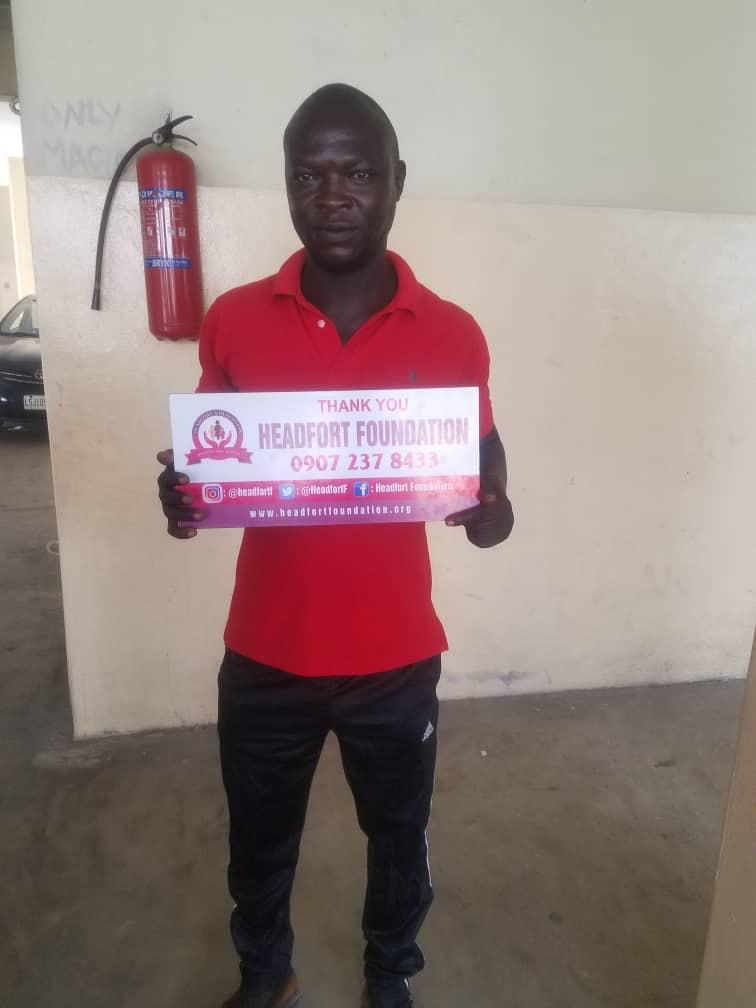
Headfort Chambers practice law with a difference. What makes Headfort Chambers standout?
Two things; I as the Managing Partner of the Chambers, I worked for four firms before the Headfort Chambers came on board, and in my experience, I discovered that most law firms are for the rich. An average person won’t just work into a law firm because it is the belief that their services are for the high class in the society. When we started, our focus was that we want to make justice accessible and affordable at the same time we are delivering quality. We want everybody to be able to access justice regardless of socio-economic status in the Nigerian society. The other aspect is that whoever joins us, we become a family. This is because we just don’t want to become your legal adviser; we want to become part of your life. Don’t forget that as an individual or organisation, you need a lawyer at every stage of your life.
Donors for Africa Foundation listed you as one of the 100 impactful Women in Development, what motivational factor does this bring to your cause of fighting for justice for the poor in Nigeria?
When we get such accolade, it gives us the motivation to go on. When we are recognise like this, it shows us that people are watching, people are seeing what we are doing and they resonate with it. So, we can’t afford to be tired. This gives us an inspiration to move ahead and to go on doing what we believe in. I want to see us making corrections in the life of most Nigerian youth who are not doing the right things. A lot of Nigerian youth are following me on the social media platforms and I have been receiving many messages to thank me for making positive impacts on their life. All these messages keep telling me that I can do more and better than yesterday.
You recently organised an online training on how to choose a business name, is this one of the ways to diversity in this COVID-19 pandemic era?
We do training normally, it could have been physically but for Coronavirus, we have to make it virtual. However, I said earlier that we have a Chambers and we want it to be accessible to every Nigerian. So start-up people are naturally people who cannot afford legal service. Some may afford it but they don’t understand that they need it. What we tend to achieve with those trainings is that we want to be identified with these start-up people and bring them up to speed with all rudiments that will make their growth in life easy. We want to help the entrepreneurs take decisions that will help develop and grow their businesses. We do a lot of training, sometime they are free and sometime they are paid for.
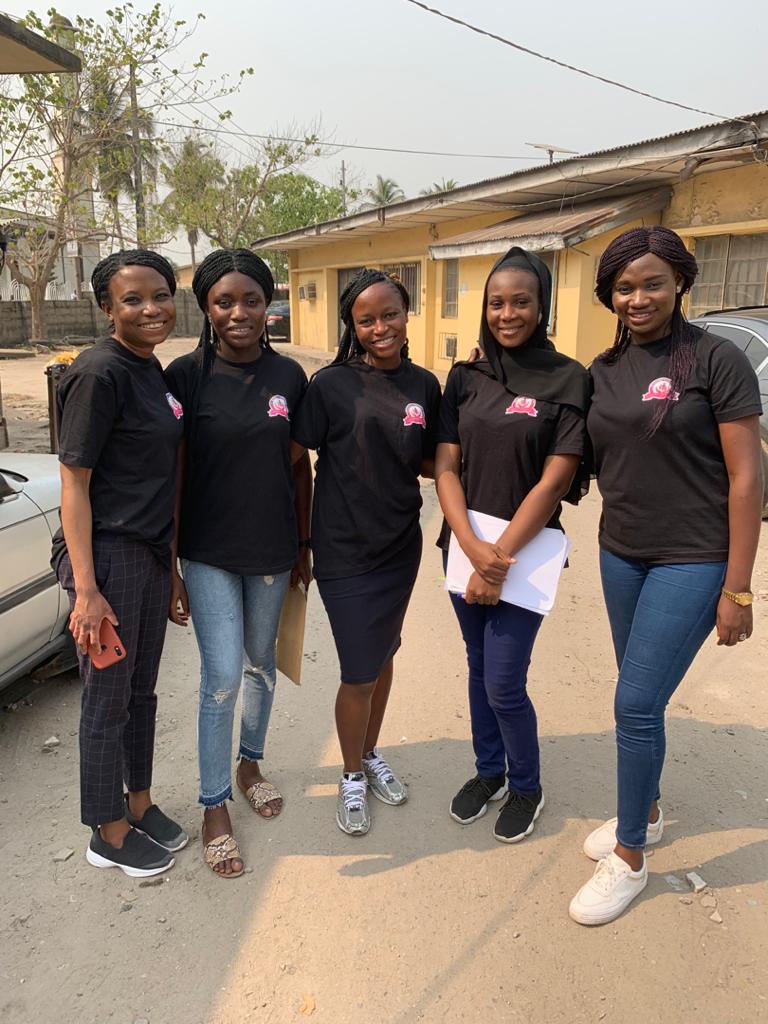
Headfort Foundation is quoted to be a family of dedicated professionals with the responsibility to support the community through pro bono and charitable activities, apart from the cause of justice for the needy and the poor, what other charitable works is your organisation still doing?
We help women who are victims of domestic violence. We have partnership with some organisations such as Gender Mobile and others which referred their victims to us and we take them pro bono as well. We do get justice for most women, whose right have been abused by working them through the relevant government agencies, and mostly we do this for free.
What do you think Nigeria can do to tackle the problem of rape in the country?
To me, it is not every problem that is government’s problem. The best any government can do is to promulgate laws against some things we don’t want and then sensitise the people for them to be aware of the laws after which the government will enforce the laws. As a rape victim, if I don’t come out to talk about it, there is no way the government can help me. We need to talk to our girls about talking, to say something that this has happened to me or this is happening to me. If you are ready to talk, another thing is to be ready to go to the end of the matter. There have been several occasions people would talk and next thing they would say is that ‘I’m not interested to go further with the case’. One thing is to talk; another thing is to be ready to come to the court to give evidence. When scenario like this plays out, there is nothing the government and the court could do. So as victims, we have a role to play. A perpetrator of rape comes from a family; a governor comes from a family. We all come from our respective families, so if a family can train its girl-child, and male-child, we will have fewer problems in our society. I believe that if the families are good, we will have less corruption in Nigeria. This is because the people who are embezzling our money come from one family or the other. If families can instil discipline and good morals in their family members, it will have multiplier effects of a good society on us. If everyone can be mindful of the name of his or her family as an ambassador of such family, I think we will have less issue.
Have you heard about the ongoing conflict in the Southern Cameroons next door, which has flooded Nigeria with thousands of refugees? If yes, what is your organization planning to do to alleviate the plight of female folks seeking solace here?
As of now, we are only present in Lagos State, in the long run however, our vision is to spread our tentacles to all the 36 states of Nigeria including FCT Abuja, then to other African nations. We are unfolding ourselves in stages, right now we don’t have the capacity to even extend outside of Lagos, but the irony of this is that we are having series of demands from people across the country asking for our helps. I know for sure that we will be everywhere very soon when our capacity increases to meet up with our dreams.




